By Kent R. Kroeger (November 30, 2018)
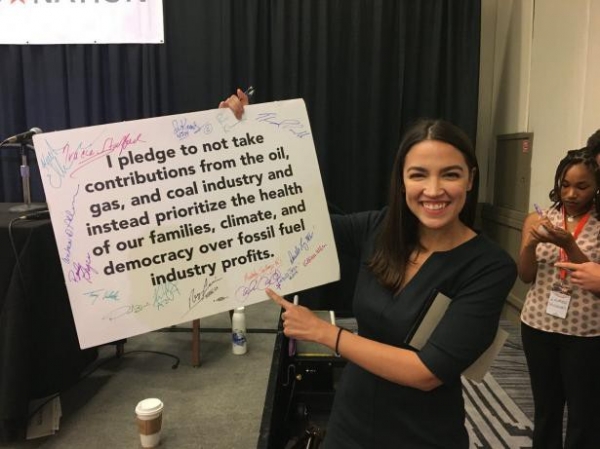
She hadn’t been in Washington, D.C. a week before Congresswoman-elect Alexandria Ocasio-Cortez (D-NY) decided to join climate change activists in a sit-in at House Minority Leader Nancy Pelosi’s congressional office.
Her act was bold, some would even say imprudent, but it was also unprecedented. Never has an incoming U.S. House member participated in a protest in the office of a fellow congressperson, much less the presumptive House Speaker.
“She was elected as part of the movement, she intends to govern as part of the movement,” Ocasio-Cortez spokesman Corbin Trent told The Hill. “She thinks there is no other priority that we should be focused on and supports the sunrise movements call for Democrats to create a plan to transition the economy to a zero carbon economy so we have that ready to go when we take back the Presidency in 2020.”
On the same day she lent her support to the activists in Pelosi’s office, Ocasio-Cortez unveiled a proposal for the House to appoint a Select Committee for a Green New Deal, thereby bypassing the House Energy and Commerce Committee, which is likely to be chaired by Rep. Frank Pallone (D-NJ) in the next session.
Within hours of the proposal’s release, Pelosi released a statement urging police to release the demonstrators that had camped in her office, and Pallone arranged a private communication with Ocasio-Cortez, presumably to poo-poo her idea of creating the select committee.
Yet, don’t assume this is another victory for the imperious political establishment. On the heals of an agreement between Pelosi and Congressional Progressive Caucus (CPC) leaders, Rep. Mark Pocan of Wisconsin and Pramila Jayapal of Washington state, to ensure 40 percent of the Democrats on five of the most powerful House committees would be CPC members, rumors are also spreading that Ocasio-Cortez will be assigned to the House Energy and Commerce Committee, one of the most powerful House committees.
If this should materialize, it will be further evidence that Ocasio-Cortez has no intention of blending into the House chamber’s walnut paneled walls and will instead be one of the CPC’s most influential members — a caucus whose size may account for nearly two-thirds of House Democrats in the next session.
And unless one believes Pelosi is a Medicare-for-All-type progressive (I don’t), the CPC’s rise will mark the beginning of her end as the most powerful House Democrat.
However, that is not the story being offered by the political media.
As the House Democrats begin to pick their leadership for the upcoming session, a predictable flurry of news stories and opinion pieces have emerged promoting the myth of Pelosi’s impregnable hold on power.
“During Nancy Pelosi’s four years as speaker, there was no confusion as to who was in control,” says New York Times writer Robert Draper. “Pelosi used the tools at her disposal — committee assignments, campaign donations — to establish a balance among her party’s coalitions while also reminding everyone that her job was not simply to officiate and appease.”
“(Pelosi) understands the position of all her members, talks to them, determines what their interests and feelings are, and figures out what will induce them to come over to her side,” writes The American Prospect’s Paul Waldman. “It’s a task that requires systematic preparation and careful implementation.”
All true statements. But these Pelosi tributes are mostly retrospective and derivative, offering little insight on the true dynamic now going on behind Democratic office doors.
As there will be no significant congressional legislation passed in the next two years, there is little incentive for a legitimate contender to Pelosi to emerge now.
After the 2020 elections, it will be a very different story.
Ocasio-Cortez’ rise is Kennedyesque and the GOP knows it
Some political observers have compared Ocasio-Cortez to Donald Trump, both making promises to their core constituencies they can’t keep, and if such promises were implemented, might even do more harm than good.
Others, citing quotes like the one below about the ‘three chambers of government,’ compare her to Sarah Palin.
“If we work our butts off to make sure that we take back all three chambers of Congress, uh, rather, all three chambers of government — the presidency, the Senate and the House — in 2020,” Ocasio-Cortez recently said in an Instagram Live podcast. “We can’t start working in 2020.”
The conservative media’s overwrought reaction to Ocasio-Cortez’ calling the presidency, U.S. House and U.S. Senate the “three chambers of government” says more about their respect for her potential than it does about her political knowledge.
Ocasio-Cortez’ point was obvious — to win control of the presidency and both congressional chambers in 2020, congressional Democrats must pursue their legislative agenda now — even if her choice of words did not serve her argument well.
We should all have our every public word monitored by the news media and see how many factual errors we make on a regular basis.
Nonetheless, Ocasio-Cortez’ near constant presence on TV and social media has revealed some genuine knowledge gaps and a Trumpian-like propensity to brush over crucial details.
“Ocasio-Cortez’s 14-point victory over 10-term incumbent Democrat Joe Crowley was certainly impressive,” says conservative Boston Herald columnist Michael Graham. But since then, he’s not as impressed. “Her stumbling media appearances have sparked references to the ‘P’ word: Palin.”
Comparisons to former vice presidential candidate Sarah Palin may be warranted, but not for the reasons many assume. When McCain selected Palin to be his running mate on August 29, 2008, she was not a joke to the Democrats. In fact, the attractive populist from Alaska scared them to death.
“People forget, she had the Democratic party shaking in our boots in 2008,” recalls former Democratic operative and CNN host Van Jones. “She came out and she gave that speech at the convention. That was hands down one of the best convention speeches, not by a woman, by anybody in 2008. People were running for the hills.”
Her one debate appearance against Joe Biden was also considered a success. However, two months later, following a worldwide financial meltdown and a series of media-amplified Palin gaffes, McCain would lose the election to Barack Obama by seven points.
Had Palin demonstrated any ability to improve her skill sets and minimize her deficiencies, she may have won the presidency in 2016 instead of Donald Trump. For a brief moment, she seemed like she had that potential — then the media attacks started.
A similarly negative reaction to Ocasio-Cortez by Republicans and many establishment Democrats suggests they are similarly concerned about her fast-rising political prospects.
Ocasio-Cortez is not another Sarah Palin. Indeed, the more apropos comparison is to a young John F. Kennedy.
The common threads between Kennedy and Ocasio-Cortez
John F. Kennedy, when he was first elected to the U.S. House in 1946, was a new money aristocrat, Navy war hero and son of a former U.S. ambassador.
He also could be intellectually lazy in one moment and display his considerable intuitive brilliance in the next. By upbringing, he had a junkie’s compulsiveness to serve his earthly appetites; from that same upbringing he had the personal confidence to stand up to a U.S. military establishment pushing (perhaps even conspiring) to invade Cuba in October 1962.
Yet, these are not the characteristics that bond Kennedy and Ocasio-Cortez.
Kennedy wasn’t shy about defying political norms. He understood that, in national politics, timing is far more important than calendar age and refused to wait for ‘his turn’ when it came to running for president.
Elected as the youngest elected president in history, Kennedy fit the early 1960s in a way LBJ or Hubert Humphrey did not. Had he gone by the textbook, he would have waited behind them before running for president.
Similarly, Ocasio-Cortez is also blowing up political norms.
Both will have first entered the U.S. House at 29-years-old. Like Kennedy, Ocasio-Cortez is charismatic and comfortable within the newest communication platforms. Kennedy mastered the television medium before most other national politicians of his time. For Ocasio-Cortez, her mastery of multiple social media platforms helped her overcome the significant financial and endorsement advantage of her primary opponent, Rep. Joe Crowley.
It also helps that Ocasio-Cortez’ looks work well in the talking-head close-ups typically used for podcasts, just as Kennedy was immanently watchable during his TV appearances.
The informality of social media also serves Ocasio-Cortez’ communication style well and lessens the impact of her verbal gaffes and tics (though she still needs to cut down on her use of the word ‘like’). A semantic mistake like the ‘three chambers of government’-gaffe, that might repel older audiences, is more likely to be forgiven by millennials more accustomed to the lower production values and content quality of YouTube and other podcast platforms.
Nothing shows the growing irrelevance of the political establishment (both on the left and right) more clearly than their collective meltdown every time Trump or Ocasio-Cortez make even a minor semantic or factual error.
The marketability of gotcha journalism finally may be over.
But to really appreciate the comparability of Ocasio-Cortez’ rise to Kennedy’s, a closer look at Kennedy’s early political career is helpful.
A short history of John F. Kennedy’s early years (1917-1946)
Our thoughts on JFK often go to the Cuban Missile Crisis, the assassination, Camelot or any of the many personal tragedies endured by his family, but I’ve always been fascinated by the young Kennedy, particularly his proto-political years. And it is in that part of his life that I see noteworthy similarities to Ocasio-Cortez.
For this reason, I recently re-read Illene Cooper’s book, Jack: The Early Years of John F. Kennedy, which offers a deeper understanding than other biographies of the forces that drove Kennedy to become our 35th president. Focusing on his years leading up to his election to the U.S. House in 1946, Cooper details how his self-image was built on a childhood defined by “ill health, an intense sibling relationship, mixed family messages, (and) prejudice against Irish Catholics in America.”
An inconsistent student throughout his life, Kennedy compensated by relying on his distinctive good-looks, innate intelligence and abundant charisma to navigate through and around life’s typical challenges.
Cooper’s biography reveals the young Kennedy as more ‘street smart’ than a polished intellectual.
Lacking the credentials of an academic historian, a 23-year-old Kennedy nonetheless wrote a readable, if slightly pedestrian, account of why England failed to properly prepare for the aggression of Hitler’s Germany. Published in 1940 under the title, Why England Slept, the book sold around 80,000 copies and offered Kennedy a glimpse of what personal fame feels like.
He liked the feeling, according to Cooper — particularly the pleasure of not being under his father’s and older brother’s (Joe Jr.) shadow.
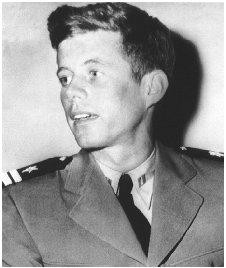
World War II intervened, however, and a physically fragile Kennedy entered the United States Naval Reserve where he would eventually earn a Navy and Marine Corps Medal and a Purple Heart Medal for his heroic actions as the commanding officer of a Motor Torpedo Boat (PT-109) following its collision (with a Japanese destroyer) and sinking in the Pacific War area on August 1–2, 1943.

This well-earned second encounter with notoriety ignited a work ethic in Kennedy comparable to his already ample ambition. So, what would he do next? Upon leaving the Navy, Kennedy began making speeches around Massachusetts in 1945 with the clear expectation of running for political office.
Whether by luck or familial string pulling, U.S. Rep. James Michael Curley announced that he would leave his seat in the strongly Democratic 11th congressional district of Massachusetts to become mayor of Boston in 1946. With his campaign financed by his family, Kennedy won the Democratic primary by beating his 10 opponents with only 12 percent of the vote and went on easily to win the general election.
Despite his many advantages, Kennedy also possessed many liabilities as a political candidate. According to historian Seth Ridinger, his wealth and elite education did not help him in working-class sections of Massachusetts's 11th congressional district. Accordingly, Kennedy’s campaign developed a stump speech addressing the bread-and-butter issues attractive to working-class voters, the main points of which centered on “affordable housing for returning veterans and well-paying jobs to anyone willing to work.”
Even with significant health issues, mostly related to his back problems, Kennedy was a tireless campaigner — a political natural with a protean knack for maneuvering tricky interpersonal relationships. And he was not just a great public speaker, but a formidable extemporaneous speaker as well.
While most national politicians are generally impressive people, some are far better than others. Transcendent politicians — particularly those that become president — embrace the trials and tribulations inherent in the profession, and for them the combat is the primary attraction, perhaps more than even ‘doing good’ or helping one’s constituents.
If there is one defining characteristic shared by Kennedy and Ocasio-Cortez, it is this love for political battle. Ocasio-Cortez does not let a public insult go unanswered — and the Kennedy’s were no different.
Convinced JFK’s 1960 Democratic primary opponent, Hubert Humphrey, had not done enough to prevent anti-Catholic sentiments from entering the West Virginia primary race, JFK’s campaign nurtured one of the dirtiest political attacks of all time by insinuating Humphrey was a draft dodger. Utterly untrue, as Humphrey tried to join the armed forces three times but was rejected each time for health reasons, the Kennedy campaign was able to put enough layers between themselves and the ‘dirty trick’ to minimize any potential backlash.
There is no evidence Ocasio-Cortez has ever done anything like that, and nothing in her public persona suggesting she ever would. Regardless, she does fight back when attacked and shows no fear in bloodying a few noses, if necessary (see two of her best Twitter replies below).
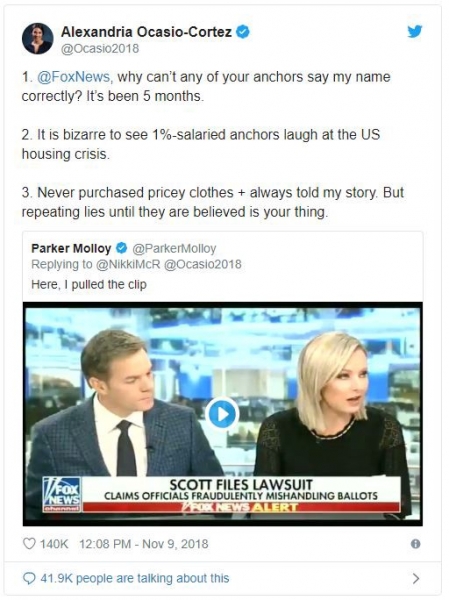
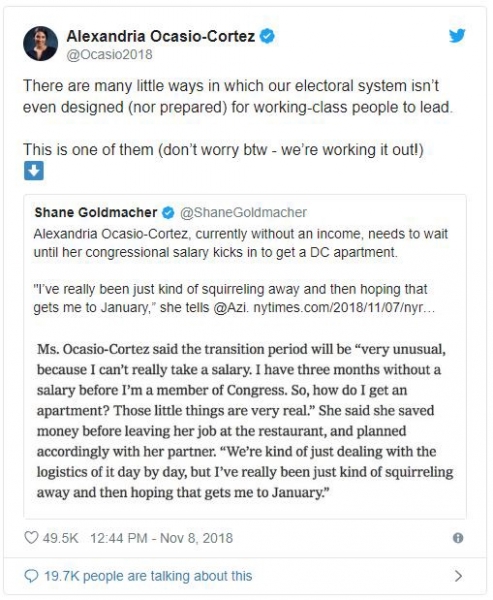
A momentary digression: My wife insists Nancy Pelosi is more Kennedyesque than Ocasio-Cortez.
My wife reacted negatively to Ocasio-Cortez’ participation in the Pelosi office sit-in. It just rubbed her wrong. “Disrespectful.” “Grand-standing.” “Bad politics.”
She also rightly points out that Nancy Pelosi is an imposing “fighter” in her own right, famously saying once that “any House Democrat voting with the party leadership 99 percent of the time is going to regret that 1 percent where they didn’t.”
Why do I not include Pelosi in the same class as Kennedy or Ocasio-Cortez? Certainly Pelosi was capable of being president, even if she chose a different political path. So, am I just being sexist?
It is true that Pelosi is a fearsome political brawler — one of the best. But many years ago Pelosi made the decision to become the Democratic Party’s preeminent bag man, which makes her duty-bound to the wealthy and corporate donors that have made her the most powerful woman in American politics.
This is not a criticism. That is how the system works. It is a statement of simple fact that even her most ardent supporters acknowledge. And that is why, from universal health care to bank regulation, she never was and never will be a reliable champion for progressive causes in the U.S House. The Democratic Party is too dependent on pharmaceutical and banking money, as just two examples, to ever drastically undercut those corporate interests.
No, Obamacare was not progressive health care reform. It was a special interest patchwork that included some progressive agenda items — mandatory insurance coverage for abortion and the limited expansion of Medicare/Medicaid — but it also protected pharmaceutical companies that insisted their highly-profitable industry not be subjected to more price competition (comparable to every other industrialized country). One of the causes of America’s expensive health care system is the relative high cost of prescription drugs; yet, Obamacare basically turned its back on the issue.
Obamacare is the handiwork of people like Nancy Pelosi, an establishment Democrat, or as I prefer to call them — incrementalists — which to a progressive’s ear should sound like a dirty word.
This is why Ocasio-Cortez and other progressives, such as Rashida Tlaib (D-MI), Ilhan Omar (D-MN), Ayanna Pressley (D-MA), Ro Khanna (D-CA), Raúl Manuel Grijalva (D-AZ) and Pramila Jayapal (D-WA), are potentially change agents in a way that is not possible by any establishment Democrat.
Change agents possess five qualities, according to leadership expert and author George Couros: (1) a clear vision, (2) persistence, (3) ready to ask tough questions, (4) leads by example, and (5) builds trust by saying what they will do and doing it.
We’ve already seen all five of those qualities demonstrated by Ocasio-Cortez since she’s become a national political figure. In contrast, the Tom Perez-Nancy Pelosi-Chuck Schumer Democratic brain trust falls flat on all five qualities, particularly when it comes to a clear vision and building trust. I don’t know what the establishment Democrats stand for and absolutely do not trust that they will do what they promise to do.
Regardless of whether you support progressive Democrats’ agenda (I, for one, have grave reservations), it is hard not to respect and admire their authenticity and sincerity. I believe the election of Donald Trump is, in part, a product of Americans’ desire for this type of leadership.
That is also why I believe a future president will come from this group of Justice Democrats. And the one most likely to be that person, in my opinion, is Ocasio-Cortez.
JFK’s U.S. House career hints at what may be her path to the presidency.
An even shorter history of John F. Kennedy’s U.S. House years (1947–1952)
JFK was a political outsider from the start of his political career. “He was never fully embraced by the liberal (FDR) wing of the Democratic Party,” wrote journalist John Avlon on the 50-year anniversary of his death.
In his first congressional campaign, Kennedy was one of 11 Democratic candidates and ran his campaign outside the traditional party apparatus — in part, because he had to do it that way.
As the U.S. Ambassador to Great Britain from 1938 to 1940, Kennedy’s father, Joseph P. Kennedy, developed a close relationship with British Prime Minister Neville Chamberlain, who would declare after 1938 peace treaty with Adolph Hitler’s Germany that it would usher in the ‘peace of our time.’ Also known for his insistence to President Franklin Delano Roosevelt that the defeat of Hitler’s Germany would be too difficult, Joe Kennedy’s political career was over with the start of World War II.
Similar to the way slurs like ‘racist’ and ‘sexist’ are used today to diminish political opponents, in 1946, the term ‘appeaser’ was the tag used to identify politicians considered too weak to be trusted — and that was a label that would follow JFK into his presidency.
Perhaps it was advantageous to Kennedy’s long-term political goals that he learned how to work outside the party system. Given the strategy was successful in his House campaigns, he continued this outsider strategy in his 1952 U.S. Senate and 1960 presidential campaigns.
Reviewing the book, “The Road to Camelot,” by Thomas Oliphant and Curtis Wilkie, Barack Obama’s 2008 campaign manager, David Plouffe, highlighted their observation that “the Kennedy presidential campaign kicked off unofficially years in advance, with a focus on defying traditional party politics, building a strong grass-roots organization and bringing new voters into the process.”
Unlike Ocasio-Cortez, Kennedy’s family money offered him the luxury of shunning the campaign resources that comes with the traditional party structure. Even so, once elected, both entered Capitol Hill lacking a strong relationship with party leaders.
We will find out soon how that will impact Ocasio-Cortez’ committee assignment(s), but we know how it impacted Kennedy’s House career.
“We were just worms in the House,” Kennedy would later say about his time in the House. “Nobody paid attention to us nationally.”
Contributing to the young congressman from Massachusetts’ frustration was a Democratic House leadership, led by Sam Rayburn, that had a hard time separating the young Kennedy from his father’s ignominy.
The 80th Congress
Ninety-three new members entered the House on January 3, 1947. Among them, along with Kennedy, was Jacob Javits (R-NY), who served in Congress from 1947 to 1981, John Davis Lodge (R-CT), the grandson of former Senate Majority Leader Henry Cabot Lodge, and Richard Nixon (R-CA), a future president and Kennedy adversary.
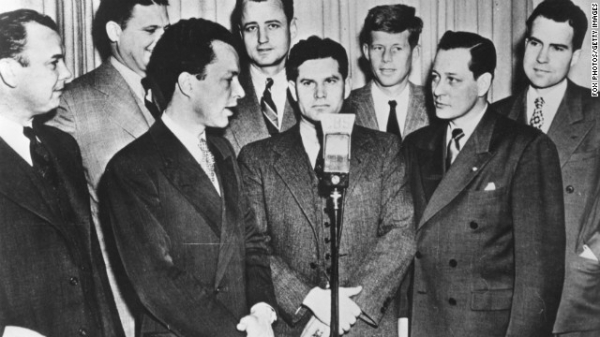
Javits and Lodge were rising stars in the Republican Party, evidenced by their both being assigned to the prestigious House Committee on Foreign Affairs. In contrast, Nixon and Kennedy found themselves on the House Committee on Education and Labor. While not a low prestige committee, it was not what Kennedy wanted. Nixon, at least, would also get assigned to the Committee on Un-American Activities, fulfilling one of his major policy interests. Kennedy’s second committee assignment, on the other hand, was to the Committee on the District of Columbia, often a dumping ground for lowly regarded House members.
For a Democrat with presidential aspirations, a tight relationship with labor unions is essential and there is no better place to start those relationships than on the House Committee on Education and Labor.
But that was not Kennedy’s core interest.
“Our foreign policy today may well determine the kind of life we will live here for generations” Kennedy told an audience at the Crosscup-Pishon American Legion Post (Boston, MA) on November 11, 1945. “For the peace and prosperity of this country are truly indivisible from the peace and prosperity of the world in this atomic age.”
From the start of his House campaign, Kennedy showed a preference for foreign policy and veteran’s issues. His first book was on the British response to Germany’s military buildup leading up to World War II. It was no secret Kennedy wanted an appointment to either Armed Services or Foreign Affairs, and finding himself on Education and Labor simply activated his susceptibility to boredom.
Kennedy would get re-elected to the House in 1948 and 1950, but his committee assignments remained the same. By the end of his six years in the House, Kennedy would have few accomplishments as he turned his attention to a U.S. Senate race in 1952.
Richard Nixon, having made a name for himself on the Committee on Un-American Activities, would become vice president. If it wasn’t evident before then, Kennedy’s impatience became palpable. Eight years later, Kennedy and Nixon would square off in one of the closest (and most controversial) presidential elections in American history.
What does Kennedy tell us about Ocasio-Cortez?
If Donald Trump has taught us anything, there are no absolute rules in politics. There is no single path to the presidency and there probably never has been. But there are four personality attributes common to almost all presidents — ambition, assertiveness, independence and charisma. [How do I explain George H. W. Bush? I can’t.]
Kennedy had them. Ocasio-Cortez has them.
And most important among them may be independence. Which is why what some would consider the biggest difference between Kennedy and Ocasio-Cortez — personal wealth — actually binds them together.
Through his family’s significant financial resources, Kennedy was never as beholden to party, big donor, corporate and labor money as were most other Democratic politicians. Kennedy’s family wealth offered him a level of ideological and policy independence that freed him to make more compelling appeals to working class Americans, not unlike candidate Donald Trump. This independence makes for a much stronger candidate — one that can openly tick off corporate interests without fear of financial retribution.
Kennedy had that relative autonomy and so does Ocasio-Cortez, who did not accept corporate PAC donations during her House race.
The Young Turks Network founder and CEO, Cenk Uygur, who also co-founded the Justice Democrats political action committee that endorsed Ocasio-Cortez during her House race, sees the eschewing of corporate PAC money as one of her key strategic advantages vis-a-vis the Republicans:
“She’s untethered from the donors so she is much braver than the average Democrat in Congress. She calls for a Green New Deal and says the people on the Select Committee should not take any fossil fuel money. Now, the Democrats plan to put Frank Pallone (D-NJ) as the head of the House Energy and Commerce Committee (who) takes a $180,000 from energy companies — that’s institutional corruption! Establishment Democrats go, “No, don’t criticize the Republicans because we also take money from fossil fuel companies,” but since she doesn’t take any large donor money like that, she can criticize the Republicans all she likes.”
When Ocasio-Cortez says Frank Pallone cannot be trusted to lead congressional action on climate change because he is too dependent on big gas and oil campaign money, she means exactly that. And she gladly repeats it on Instagram, Twitter, and whatever other media platform available to her.
Ocasio-Cortez sometimes gets her facts wrong and propels social and economic theories that are plainly false. For example, holding two jobs does not contribute to today’s lower unemployment rate. And how our nation could ever pay for universal health care, free public university tuition, and a federal job guarantee, while still having enough money to address climate change, is a question nobody on the progressive left can adequately answer.
“You just pay for it,” as suggested by Ocasio-Cortez, is not an answer — even though that is exactly what we already do in this country to pay for defense, Medicare, Social Security, etc.
Ocasio-Cortez’ Future
Ocasio-Cortez is only 29-years-old and shows every sign that she is coachable. Over-time, if she is disciplined (in contrast to Palin), she will be a formidable force on the national political stage. She already is, frankly.
Just as Kennedy’s career marched from a U.S. House seat, to the U.S. Senate, and ultimately to the White House, Ocasio-Cortez demonstrates every attribute necessary to follow that same path. She is smart, charismatic and optimistic. She also works hard (you can see her campaign shoes here). And, most importantly, she looks like the future, not unlike how Kennedy’s cool charm reflected America’s growing economic prosperity and world dominance in the early 1960s.
Ocasio-Cortez is not there yet and lionizing her now is probably not prudent. Besides, she has twenty years to prepare for a presidential run.
And while Pelosi’s lieutenants will do everything in their power to either turn Ocasio-Cortez to the dark side or simply destroy her national-level political viability, in the brief time we’ve known her, she appears resilient to such pressure and has already demonstrated a willingness to go around her party’s leadership to get her progressive message directly to the people. Unless Pelosi can close down her Instagram account, there is not much that will stop Ocasio-Cortez, except maybe burying her on the House Committee on the District of Columbia.
Will Ocasio-Cortez succeed in the long-term? Who knows. Few observers in 1946 saw JFK as a future president. In fact, he was viewed by many as a lightweight.
But Kennedy was no lightweight, and neither is Ocasio-Cortez.
In the near-term, expect establishment Democrats to passive-aggressively undermine the Ocasio-Cortez brand, as she and the progressive movement represent the greatest threat to their hold on power. Don’t be surprised, however, if Pelosi uses a prime committee assignment to attempt to blunt Ocasio-Cortez’ passion for ‘fundamental political change.’
The Republicans recognize the longer-term threat, which is why they are tearing Ocasio-Cortez down now (just as the Democrats did to Palin) — so they don’t have to face her at full strength in the future.
Will the Republican character assassination strategy work on Ocasio-Cortez?
After all, they successfully demonized Hillary Clinton and Nancy Pelosi. Why would Ocasio-Cortez be any different?
But I think she is different. For one, she has already shown the ability to respond quickly to attacks, while still keeping her progressive policy message front and center. Secondly, she is deft at taking her message directly to voters through social media. Lastly, she is independent of the corporate interest pressures endemic to establishment politicians like Clinton and Pelosi. Those are Trumpian qualities in a Trumpian age and that seems like a solid indicator of her political viability going forward.
-K.R.K.








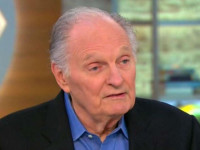


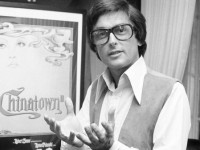








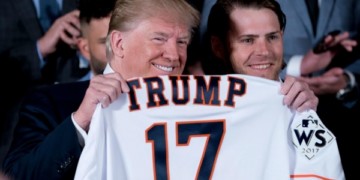


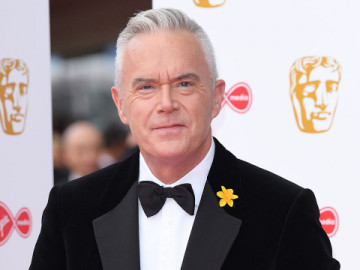

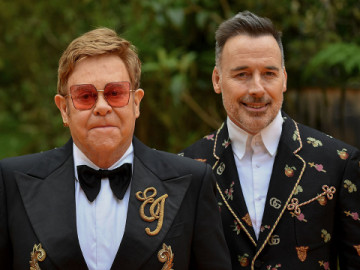
Connect with us